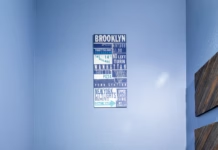Pandemic property boom widens mortgage-cash house price gap as interest rate hikes yet to dampen buyer appetites
Research by specialist property lending experts, Octane Capital, has revealed that despite numerous interest rate increases, and with another expected to come today, the gap between the price paid by mortgage and cash buyers has widened by almost £7,000 when compared to the pre-pandemic market.
Octane Capital analysed the difference in the average house price paid between those purchasing with cash and those purchasing with the help of a mortgage.
The research shows that prior to the pandemic, the average cash buyer was spending £220,696, while the average mortgage buyer was spending £20,623 more at £241,319 – 9.3% more than their cash counterparts.
This is far from unusual, as the stronger position of a cash buyer will often see them secure a discount in exchange for a smoother, faster sale.
However, since the start of the pandemic, the combination of a property market boom and the continued affordability of borrowing has seen this gap widen, quite considerably in some areas of Britain.
Today (March 2022), the average cash buyer in Britain is paying £263,468 while those backed by a mortgage are spending £290,785 on average. This means the gap between the two has widened to 10.4% or £27,317 – a 32% increase versus the pre-pandemic market gap despite a string of interest rate increases coming towards the end of 2021 and the start of this year, with another expected today.
In the South West this gap has widened by 79%, the largest increase of all regions, with the average mortgage buyer paying £8,355 more now, compared to £4,670 prior to the pandemic.
The East Midlands has seen this gap widen by 69%, with mortgage buyers paying almost £7,000 more now compared to pre-pandemic mortgage price premiums.
Wales (65%), Yorkshire and the Humber (56%) and the West Midlands (49%) have also seen the gap in the price paid by cash and mortgage buyers widen the most, but there is one region that goes against the grain of this market trend.
Pre-pandemic, a mortgage-backed homebuyer in London was paying just over £30,000 less than those coughing up the cash. While the pandemic property market boom has seen this gap reduce, today they are still paying £25,000 less on average.
CEO of Octane Capital, Jonathan Samuels, commented:
“Although a cash buyer may be the golden ticket for many homesellers due to the speed and certainty they offer, there’s no doubt that their mortgage-backed counterparts are the better option if achieving the very best price is your primary concern.
In fact, the price premium paid by those utilising a mortgage in order to purchase has grown substantially wider since the start of the pandemic and this is no doubt due to the manic market conditions caused by the pandemic property market boom.
Not only has the cost of borrowing remained relatively low, but stock shortages have pushed buyers to offer above and beyond in order to secure a property. It seems they’ve continued to do so this year, undeterred despite a string of base rate increases from the Bank of England.
That said, we have seen many lenders start to reduce their range of products and tighten their lending criteria both in response to these interest rate increases, and in anticipation of further hikes down the line.
As a result, we expect those homebuyers backed by a mortgage to approach the market more conservatively throughout the remainder of this year and this should reduce the price premium being paid when compared to cash buyers.”
Data Tables
View the full data tables online here.

| [donate]
| Help keep news FREE for our readersSupporting your local community newspaper/online news outlet is crucial now more than ever. If you believe in independent journalism,then consider making a valuable contribution by making a one-time or monthly donation. We operate in rural areas where providing unbiased news can be challenging. |



















